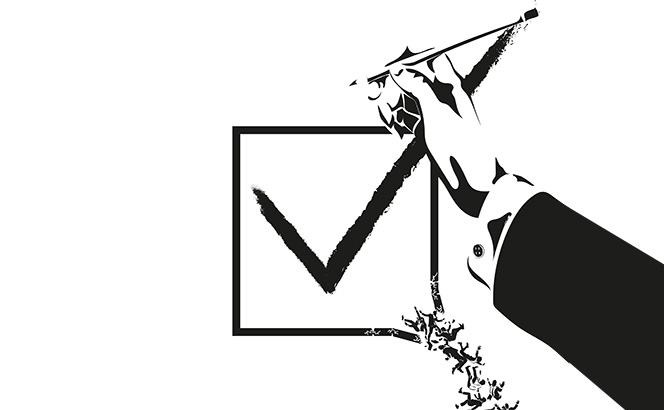If there is one topic on which the legal profession manages to be both verbose and yet perennially avoid substantive debate it is race. That is unsurprising given the woeful progress that large commercial law firms have made in recruiting black lawyers and staff in any numbers over the last 20 years.
There is progress of a kind in that such topics would once have been ignored, while now law firms feel compelled to load their comms with diversity initiatives and host events around black history month. Yet tackling head-on why many major UK law firms have fewer than 1% of their staff from the black community goes strangely unremarked.
So the disturbing scenes in the US with the killing of George Floyd, the subsequent protests and the increasingly acrimonious and partisan debate that has followed has put major law firms in an awkward position. Do they issue messages of support for the black community and risk irritating some Republican-leaning sectors of opinion in the world’s largest economy? Or say nothing and alienate staff in a profession that tends to be conservative with a small c, with a huge dose of liberalism at its core?
For cynics, there was surprise that a number of major firms came out of the gate this week with statements that were not only fluent, but avoided the grating mix of corporate argot and faux-authenticity that law firms excel at. One of the first was Clifford Chance (CC), which issued a forthright statement from senior partner Jeroen Ouwehand and US head Evan Cohen, which was about as good as I’ve seen in terms of firms commenting on sensitive topics. It’s a reminder that while CC has its faults, it has long been the City leader with the best record for progressive social issues (including recruiting diverse teams).
Other firms that issued credibly straight-talking statements included Bryan Cave Leighton Paisner, which put out a note from co-chairs Steve Baumer and Lisa Mayhew: ‘To our black and African American colleagues, friends and family: We hear you. We grieve with you and we stand with you.’ Admirable stuff for a firm with more than half its business in the US.
Other firms to put out workable statements include Baker McKenzie, Linklaters and Gowling WLG while Allen & Overy, Dentons and CC were among those making charitable donations to racial diversity institutions.
Notes one senior staffer that worked on a law firm’s public response in the wake of Floyd’s death: ‘We knew that this has to be meaty. This has to be more than, “Isn’t this awful?” This is a huge affront to our values, so how do we address that?’
Others were more cautious. I’ve heard several reports of firms in which staff have pushed for messages of support only to be rebuffed amid nervousness about the impact. Such caution is often based on experience of how institutions driven by white, privileged men can so easily fumble when grasping for the right tone, even if the good intentions are (more or less) present.
That is not to pretend that these are not difficult balancing acts for leaders when it comes to a public position in what has become an increasingly charged, partisan mood in Western democracies. Such decisions can have economic consequences; it is easy for staff to lobby for robust public positions when they don’t expect to personally foot the bill. Such considerations will be even more prominent given the dire state of the global economy.
But law firms will come under increased pressure from their staff and some clients to take, and then consistently apply, ethical stances on major issues of the day because of how society and attitudes to work are changing. This is a balancing act that managing partners will just have to get used to. And more to the point, law firms shouldn’t spend so much time promoting their values if they are not prepared to stand by them when it matters. It is called leadership.
And while there is a wider issue of how professional services firms interact with their communities on social and political issues, ethnic diversity, and particularly the awful track record of the profession at hiring and retaining black talent, is a case unto itself. Racial diversity remains the topic that the profession and, to be frank, the journalists that cover it, often feel uncomfortable tackling directly. I recall last summer when the team wrote a cover feature on the state of race diversity in City law. When we have done equivalent pieces on gender diversity, a topic that gets far more coverage than race in law, they have always provoked a lively debate. This piece landed to deafening silence, despite an excellent job by the writers, Thomas Alan and Hamish McNicol.
But the profession is never going to improve how it deals with black lawyers, staff and the wider community until it acknowledges that something is going badly wrong. Time won’t solve this, engagement and some uncomfortable discussions will.
It’s long past time to end the silence.














